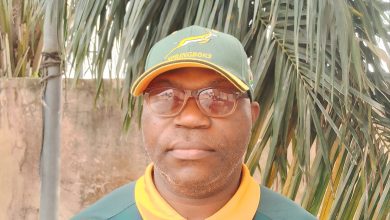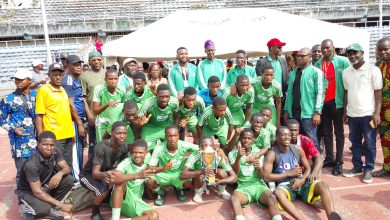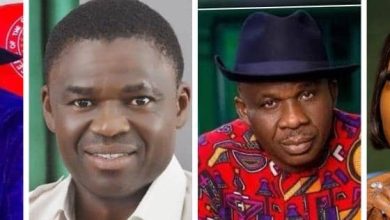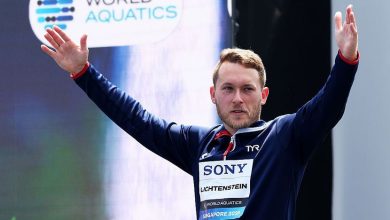IOC Presidential Election: Candidates manifestos released
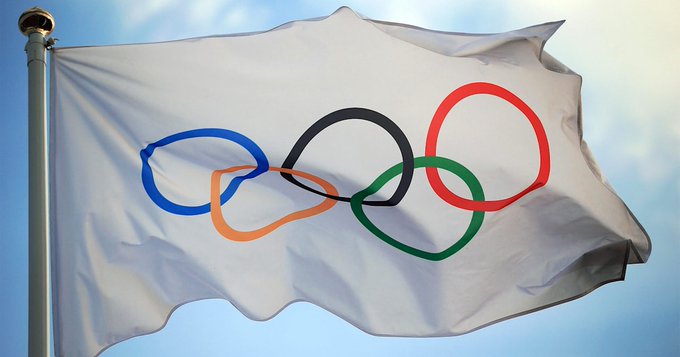
The International Olympic Committee (IOC) has published the candidature documents for the seven Presidential candidates which will serve as the basis of their presentations to be made to all IOC Members on 30 January 2025 in Lausanne, Switzerland.
The candidates’ platforms share several key themes; including athlete empowerment, climate change and sustainability, digital transformation and addressing issues related to gender.
Among the seven vying to replace Thomas Bach as he steps down from the role in March are two renowned Olympians, Kirsty Coventry and Sebastian Coe, the latter is offering to take just half of the eight-year mandate and stand again for re-election in 2029. Here are some of the key themes from all manifestos.
Listen, learn, lead
The World Athletics President turned 68 this year and will need an exemption to stay in office after he surpasses the IOC’s retirement age of 70. His “STAGE” platform—Sport First, Tomorrow’s Generation, Athletes at the Heart, Growth, and Empowerment—puts athletes at the centre, prioritising their physical, mental and financial welfare.
Aside from equitable financial recognition during their competition years, he aims to expand support programmes to better equip athletes for their next career move. Coe also promises enhanced anti-doping measures, safeguarding women’s categories and better athlete representation in decision-making; “empowering them as partners, not just participants.”
Sports for a better society
Though not specifying prize money, Prince Faisal Bin al-Hussein called for Olympic athletes to be “properly valued.” The head of the Jordan Olympic Committee also highlights that athletes are the heart of it all and called to protect their well-being throughout their careers and beyond.
The Prince also stressed that “when” the Games are held is just as important as where they are held. With climate change affecting sports through heat waves or lack of snow, he calls into question the current calendar and bids to review it with federations worldwide.
He also aims to maximise Olympic Games revenue share for international federations and national Olympic committees to recognise their role in delivering world-class athletes.
The Jordanian also expressed his pride in the success of the Refugee Olympic Team. Coming from a country that has welcomed refugees, he hopes to promote sport as a conduit for peace, using it to bring communities together amid ongoing conflicts worldwide.
On all five continents
Morinari Watanabe also highlighted the need to support the Refugee Olympic Teams, as well as Olympic committees in developing countries. He hopes to level the playing field in the spirit of ‘one for all, all for one’ and develop a system in which developed nations actively support developing nations.
The President of Fédération Internationale de Gymnastique hopes to innovate the Games by staging the Olympics in all five continents; one city and 10 sports in each in a 24-hour rolling broadcast. By doing so, the cost of hosting the Games is shared and widens the pool of potential hosts.
Changing the format of the Olympics is not Watanabe’s biggest idea. He proposed to restructure the IOC as a House and Senate, with a lower chamber of the 206 NOCs and sports governing bodies and a decision-making upper chamber of up to 120 IOC members. Furthermore, the President would have three terms of four years instead of an eight and then four.
Sport at the heart of it all
David Lappartient shares fellow federation head Watanabe’s views on making the Olympics more cost-effective Games to attract diverse host cities. The President of the Union Cycliste Internationale also highlighted that host cities will “struggle to organise them in summer due to the climate and scorching temperatures” and spoke of rescheduling the Games.
Lappartient stressed fostering sustainable sport and will move to make sustainability the core of the organisation. Aside from not contributing to environmental damage, he hopes to protect environmental, as well as socioeconomic, welfare.
Staying ahead
Head of one of the federations most affected by climate change thus far, Johan Eliasch also stressed environmental advocacy. The President of the International Ski & Snowboard Federation said that while Paris 2024 “exemplar in terms of sustainability”, the Olympics must improve and look for better ways to minimise their waste and carbon footprint.
Furthermore, he proposes rotating the Winter Games among a group of permanent venues and conserving a rainforest area of the exact size of each Olympic host city. He also moves to embrace digital storytelling and AI-powered tools to modernise training, judging, and operational efficiency.
I am because we are”
Kirsty Coventry is also moving to embrace digitalisation, using technology to improve athletes’ training, judging as well as bringing them closer to fans. She hopes to leverage AI to empower fans to create immersive experiences to better connect with the younger generation and expand the Olympics’ global footprint.
Coventry, an IOC Executive Board member and former swimmer, is pushing for strengthening established IOC policies, like the scholarship programme that directs money to athletes and the 206 national Olympic bodies, and empowering the IOC Commissions.
She also stressed that modernising the organisation can open new pathways for revenue. This will allow for a greater distribution of funds to all NOCs, further strengthening the Olympic Movement.
The business of the Olympics
Juan Antonio Samaranch Jr. also presented the Olympics as a business that needs to grow with the times and utilise modern tools to better its income generation and find ways to improve revenue distribution. He fully details business plans which include broadcasting and sponsorship.
Samaranch also moves to relax broadcast rules to let Olympic athletes use footage of their games performances on social media and be global influencers.
He suggests opening new tiers of commercial sponsors and creating a donor program to raise $1 billion (€961.760.000) within five years for Olympic non-profit foundations.


